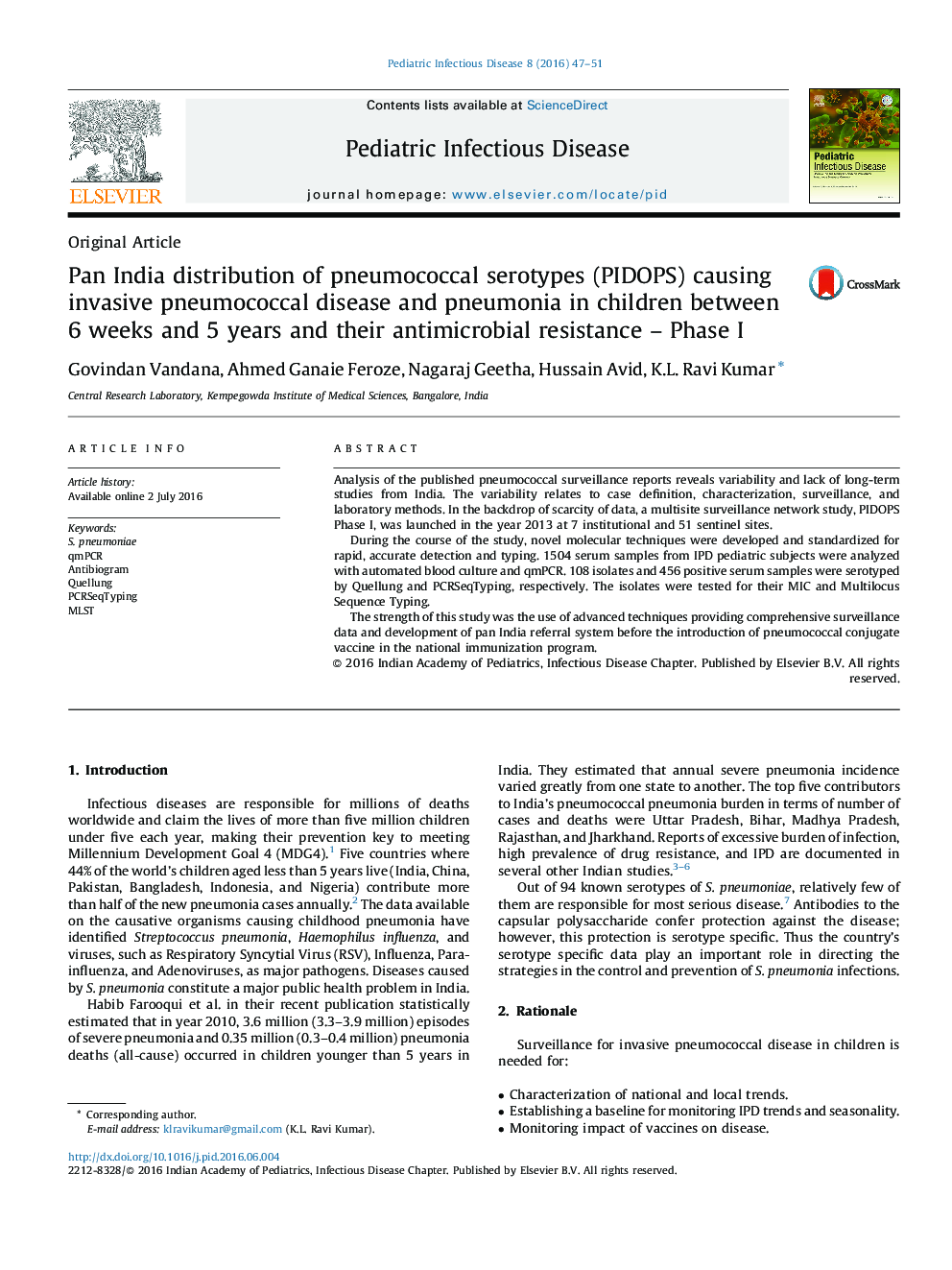| Article ID | Journal | Published Year | Pages | File Type |
|---|---|---|---|---|
| 3382248 | Pediatric Infectious Disease | 2016 | 5 Pages |
Analysis of the published pneumococcal surveillance reports reveals variability and lack of long-term studies from India. The variability relates to case definition, characterization, surveillance, and laboratory methods. In the backdrop of scarcity of data, a multisite surveillance network study, PIDOPS Phase I, was launched in the year 2013 at 7 institutional and 51 sentinel sites.During the course of the study, novel molecular techniques were developed and standardized for rapid, accurate detection and typing. 1504 serum samples from IPD pediatric subjects were analyzed with automated blood culture and qmPCR. 108 isolates and 456 positive serum samples were serotyped by Quellung and PCRSeqTyping, respectively. The isolates were tested for their MIC and Multilocus Sequence Typing.The strength of this study was the use of advanced techniques providing comprehensive surveillance data and development of pan India referral system before the introduction of pneumococcal conjugate vaccine in the national immunization program.
